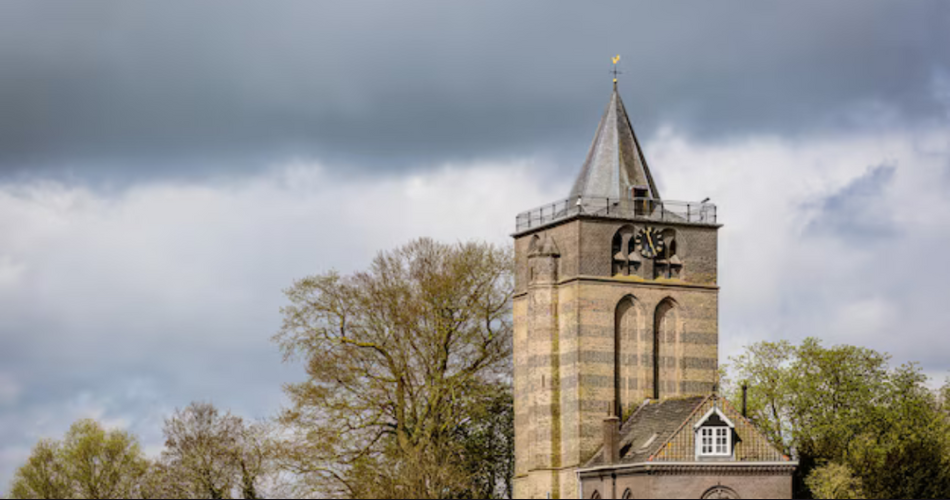Tilchurch: A New Era of Community Spaces
Introduction
In today’s rapidly changing social environment, the notion of community is evolving significantly. One of the innovative concepts emerging to address these shifts is Tilchurch—an evolved form of traditional religious spaces. Tilchurch harmoniously integrates spiritual, cultural, and social functions, fostering inclusive environments that address the diverse needs of modern communities. As societies become more multicultural and secular, the necessity for adaptable communal spaces has reached new heights. This article explores the various dimensions of Tilchurch, its origins, its rising popularity, and its influence on local communities.
By examining the core principles and practices that underpin Tilchurch, we can better understand how it serves as a catalyst for social cohesion and community engagement in contemporary society.
What is Tilchurch?
A Tilchurch signifies a transformative approach to how we view traditional religious spaces. Unlike typical churches that primarily fulfill a singular spiritual role, a Tilchurch is designed to serve both religious and secular members of the community. These venues embrace individuals from diverse backgrounds and beliefs, creating an environment conducive to worship while also hosting a wide range of events, including cultural festivals, educational workshops, and community outreach initiatives. The core principle of a Tilchurch is its dedication to inclusivity and flexibility, ensuring that all individuals feel welcomed and valued.
The Birth of the Tilchurch Concept
The concept of the Tilchurch emerged in response to the declining attendance of religious institutions. As societies became increasingly secular, there was a pressing need to find innovative ways to repurpose these often-neglected spaces. Rather than allowing these historic buildings to deteriorate, visionaries proposed a transformative approach that aligns with the evolving demands of modern communities.
The term “Tilchurch” combines “tilt,” which signifies change and adaptability, with “church,” traditionally associated with worship. This nomenclature reflects a shift from the conventional understanding of religious spaces to dynamic centers of community interaction. It symbolizes a broader reimagining of how such venues can serve the public.
The Growing Appeal of Tilchurch
The surging interest in Tilchurches can be linked to various societal transformations. In a time when individuals increasingly seek connections and a sense of belonging beyond traditional religious settings, Tilchurches provide welcoming, versatile environments that cater to these aspirations. They are designed not just for those who identify with religious practices but also for secular individuals who desire community engagement without the boundaries of organized faith.
This inclusive approach makes Tilchurch particularly appealing in multicultural contexts, where individuals from various backgrounds can gather in a common space. The fostering of cultural exchange and understanding within these environments is essential for building relationships across diverse communities, promoting a sense of unity and cooperation.
The Role of Tilchurch in Secular Communities
In secular communities, traditional religious venues often find themselves underutilized. The rise of Tilchurch has addressed this gap by transforming these spaces into vibrant centers for a wide range of secular activities, including concerts, art exhibitions, and workshops. By offering a diverse array of programming, Tilchurch not only attracts a wider audience but also revitalizes community engagement, ensuring these venues remain significant and relevant in modern life.
Tilchurch’s adaptability to meet community needs highlights its potential as a vital resource. As communities recognize the value of fostering connections and providing platforms for cultural expression, the demand for Tilchurches is likely to increase.
How Tilchurch Fosters Cultural Exchange
One of the key advantages of Tilchurch is its ability to promote cultural exchange. These spaces frequently host events that celebrate various cultures, traditions, and religions, creating opportunities for individuals from diverse backgrounds to come together and learn from one another. Such exposure fosters a deeper sense of understanding and unity among varied communities.
By offering a platform for numerous cultural events, Tilchurch encourages dialogue and interaction, helping to dismantle barriers and dispel stereotypes. The inclusive and accepting atmosphere found in Tilchurches is crucial for building cohesive communities in our increasingly globalized world.
Tilchurch as a Hub for Community Services
In addition to cultural and social events, Tilchurch often serves as a center for community services. Many Tilchurches operate food banks, counseling programs, educational initiatives, and outreach efforts aimed at assisting those in need. These essential services are particularly important for marginalized groups within the community who may struggle to access vital resources.
The blend of practical support and cultural engagement makes Tilchurch an indispensable asset to the community. By addressing both spiritual and material needs, these spaces showcase their commitment to providing comprehensive community support.
The Design Philosophy of Tilchurch
The architecture of a Tilchurch reflects its diverse and multifaceted role within the community. Many Tilchurches are established in repurposed structures, such as former churches or community halls, though new builds are increasingly common. The design emphasizes openness and flexibility, featuring expansive gathering areas that can be easily adapted for various functions.
Typically, a Tilchurch incorporates multipurpose spaces for workshops, intimate meeting rooms for counseling and support groups, and tranquil areas designated for contemplation or prayer. This intentional design not only enhances functionality but also fosters community engagement, encouraging individuals to participate in the wide array of programs and services offered.
Embracing Inclusive Worship at Tilchurch
Tilchurch is committed to providing inclusive worship services that welcome individuals from all faith backgrounds. These services often adopt a non-denominational framework, prioritizing shared human values like love, compassion, and community rather than strictly adhering to a particular religious doctrine.
This inclusive approach enables participants to explore their spirituality in a supportive atmosphere, cultivating a sense of belonging for both the devout and those who identify as non-religious. By emphasizing universal principles, Tilchurch creates a unique environment where people can connect over common values and beliefs.
A Hub for Social Connection at Tilchurch
Beyond spiritual activities, Tilchurch serves as a vibrant venue for social events. The space is frequently used for weddings, birthday celebrations, and community gatherings, reinforcing its role as a central meeting point for local residents. This versatility allows Tilchurch to facilitate both formal and informal occasions, further embedding it in the fabric of the community.
By hosting a diverse range of social events, Tilchurch plays a vital role in fostering relationships among community members, strengthening the connections that bind them together. Sharing significant life events within the welcoming atmosphere of Tilchurch enhances its appeal as a communal gathering place.
The Educational Function of Tilchurch
Education plays a vital role in the offerings of many Tilchurch facilities. These centers often provide a diverse range of classes covering topics such as arts and crafts, languages, and historical studies. Designed to be inclusive, the educational programs at Tilchurch cater to individuals of all ages and backgrounds, establishing themselves as pivotal learning hubs within the community.
By emphasizing the importance of education and lifelong learning, Tilchurch fosters personal growth and self-improvement, ensuring that community members have ample opportunities to enhance their lives. This dedication to educational initiatives highlights the comprehensive approach that Tilchurch embodies.
Commitment to Environmental Sustainability in Tilchurch Design
Sustainability is a foundational principle integrated into the design of many Tilchurch facilities. Through the adaptive reuse of existing structures or the construction of new buildings using environmentally friendly materials, these spaces aim to reduce their ecological footprint. Additionally, numerous Tilchurches incorporate green technologies, including solar energy systems and rainwater collection, reinforcing their commitment to sustainability.
The implementation of environmentally conscious practices in both the design and operation of Tilchurch facilities reflects a progressive mindset towards community development. As public awareness of environmental challenges grows, the sustainability efforts of Tilchurch are poised to gain even greater significance.
Tilchurch and Mental Health Resources
Mental health support is a crucial aspect of the Tilchurch initiative. Many facilities provide safe environments where individuals can access guidance and assistance, offering resources like counseling, support groups, and mindfulness sessions. With mental health issues becoming increasingly prevalent in today’s fast-paced society, the availability of these resources is more critical than ever.
By integrating mental health support with spiritual and cultural activities, Tilchurch significantly contributes to the overall well-being of the community. This focus on mental health awareness and support within these spaces reflects a comprehensive understanding of what it means to be a healthy, engaged community member.
Challenges Facing the Tilchurch Movement
While the Tilchurch movement presents numerous advantages, it also encounters significant challenges. One of the foremost issues is the quest for reliable funding. Many Tilchurches rely heavily on donations or government grants, which can be erratic and uncertain. This dependency on external financial support can impede their growth and long-term viability.
Moreover, the movement often faces resistance from traditional religious institutions. Some individuals view Tilchurch as a deviation from established practices, leading to opposition against its inclusive nature. Addressing these challenges is crucial for the Tilchurch movement to thrive and gain acceptance within various communities around the globe.
The Future of Tilchurch
The outlook for Tilchurch is promising, particularly as more communities begin to appreciate the value of these versatile spaces. As societal demands evolve, the need for inclusive and adaptable environments, like those offered by Tilchurch, is expected to increase. Advancements in technology and community-focused programming can further enhance the vital roles that Tilchurches fulfill in their localities.
As the concept of Tilchurch gains traction, we can look forward to a society that is more interconnected and engaged. The potential for collaboration among diverse groups, the encouragement of cultural exchanges, and the nurturing of mutual support are all elements that will ensure the continued relevance of Tilchurch in contemporary life.
Conclusion
Tilchurch represents a significant transformation in how we perceive community spaces. By integrating spiritual, cultural, and social functions, these venues foster environments where individuals can connect, learn, and grow collectively. They effectively bridge traditional values with modern needs, offering something meaningful for everyone—be it religious worship, cultural enrichment, or simply a welcoming gathering place.
As society continues to change, the importance of Tilchurch is poised to increase, contributing to a greater sense of community in an increasingly diverse world. By embracing the core principles of inclusivity and adaptability, Tilchurch provides a forward-thinking vision for community life, ensuring that everyone has a place to belong.
Stay in the know with the latest news and updates on Weboftimes.com

